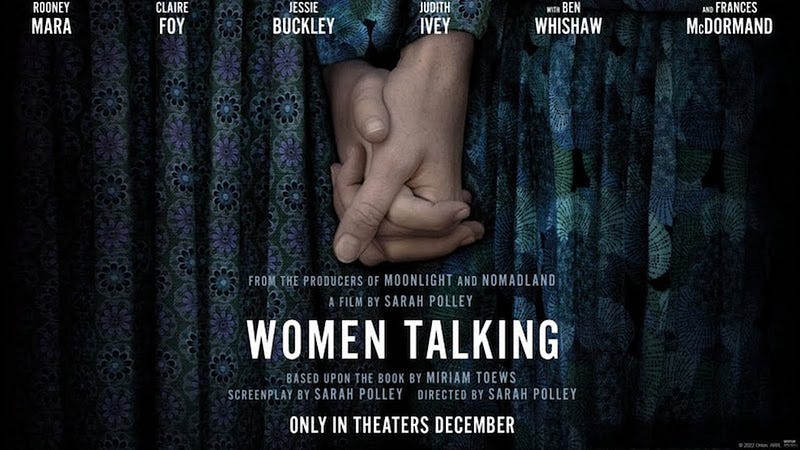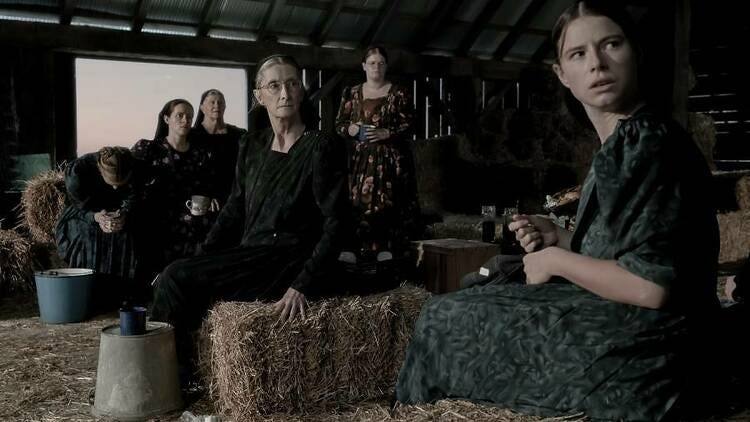“In that gaping silence was the real horror”.

Written and directed by Sarah Polley in her fourth outing behind the camera after directing Away From Her in 2006, Take This Waltz in 2011 and Stories We Tell a year later, I was initially attracted to this double Oscar nominated film by my cinematic love for Frances McDormand and without any trailers or reviews whatsoever. Although McDormand’s role here is minimal and arguably gives the title of “cameo” a whole new meaning, it is to the ensemble cast of largely female actresses as well as Ben Whishaw we turn to for an intriguing film based on real life events, as well as a 2018 novel of the same name written by Miriam Toews.
Nominated for two Academy Awards at this year’s Oscars, the premise of the film is a simple one: with on-going unspeakable abuse continuing at a religious “colony” in the year 2010, the women hold court in a hayloft with only 48 hours to decide whether to do nothing, stay and fight the abusive men currently held in prison, or leave the only life they’ve ever known before their repugnant abusers return. With little or no education and zero knowledge of an outside world presented to the women on rudimentary maps, you would be forgiven for believing the time setting to be a century or two earlier than 2010 as the senior members of the group invoke a rudimentary voting system before retreating for further discussions and deliberations on their final, group decision.

Between the narrated bookends of “This story ends before you were born” and “Your story will be different from ours” is a fantastic if dryly told story of feminism, women’s rights, self determination, gender, religion and abuse, shocking, grotesque, unspeakable acts of horrific abuse, largely seen in bloody and distressing aftermaths. An ensemble cast excel within their own very individualised and generational characters with, through the ages, Michelle McLeod, Rooney Mara, Jessie Buckley and Claire Foy all supporting an incredible performance from Judith Ivey as the elder stateswoman of the group.
Between the two songs “Daydream Believer” and “Nearer my God to Thee” lies an often distressing film on what it means to enter “The Kingdom of Heaven” and a religious colony in fear for their lives, the lives of their children and a future in a world of which they are completely alien to. The Monkees song roots you in the 1960’s. The religious hymn will root you a hundred or so years in a distant past. Yet the story and this “act of female imagination” is set in 2010 and a only a handful of short years since the despicable events happened upon which the film is loosely based.
Thanks for reading. Just for larks as always, and always a human reaction rather than spoilers galore. My four most recently published film articles are linked below or there’s well over 250 blog articles (with 500+ individual film reviews) within my film library from which to choose:
“A Man Called Otto” (2022)
Underwhelming “As Good As It Gets” for the 21st Century.medium.com
“The Whale” (2022)
“People are amazing!”.medium.com
“Sharper” (2023)
Can you cheat an honest man?medium.com
“Empire of Light” (2023)
Heart breaking seaside postcard from mental illness.medium.com



